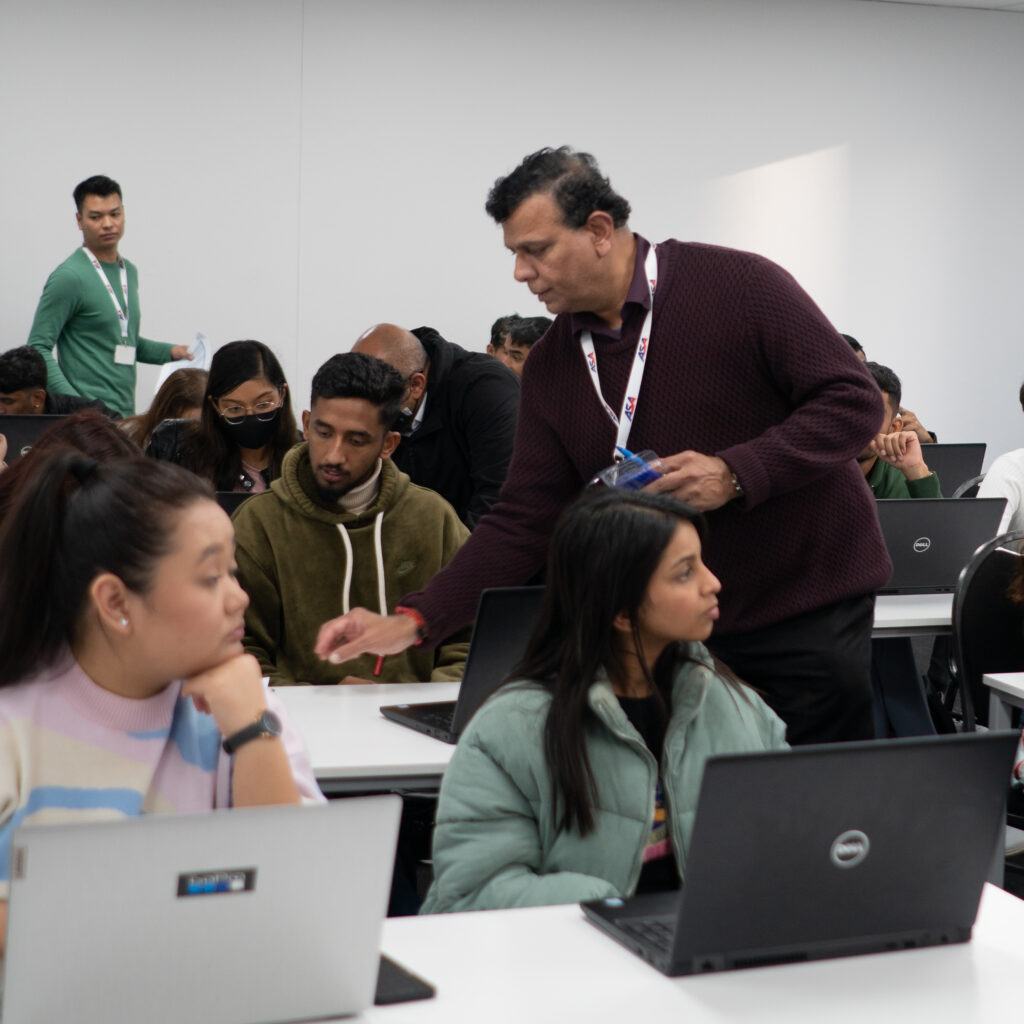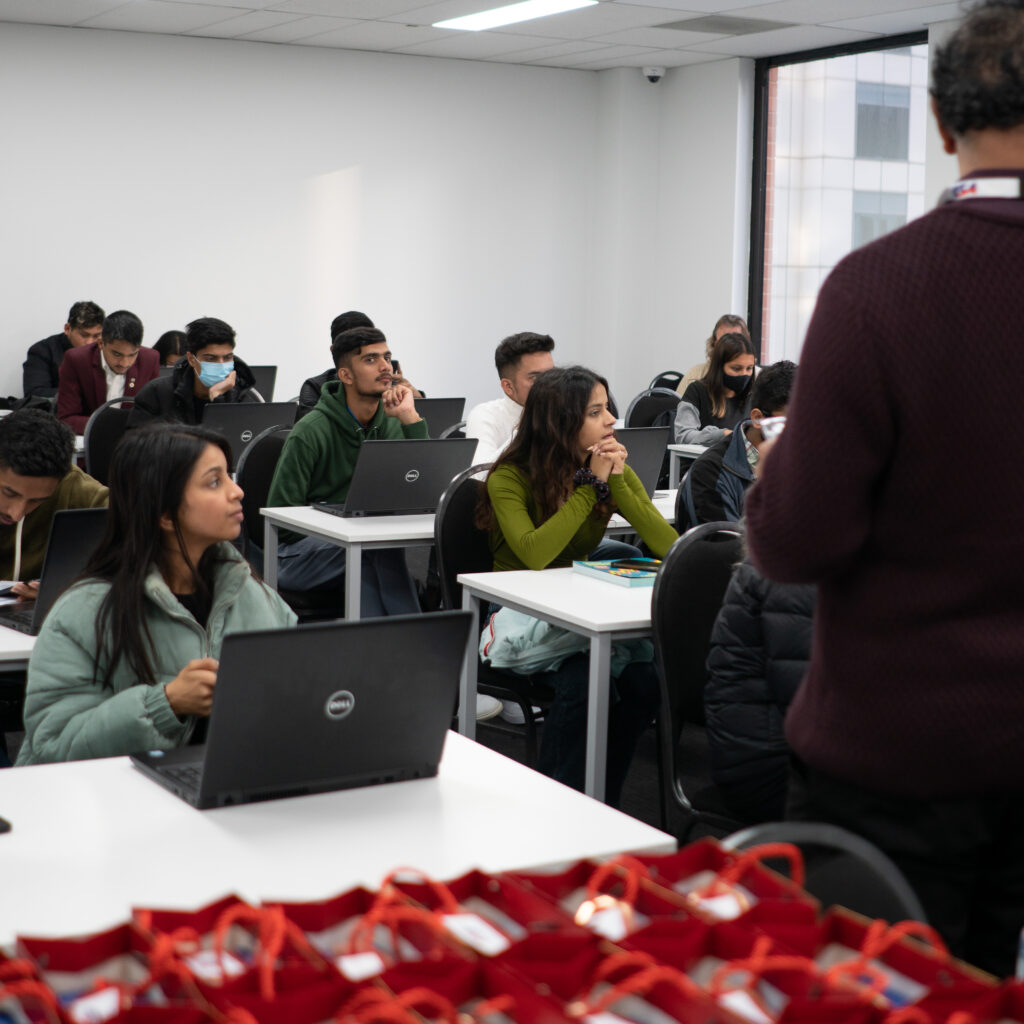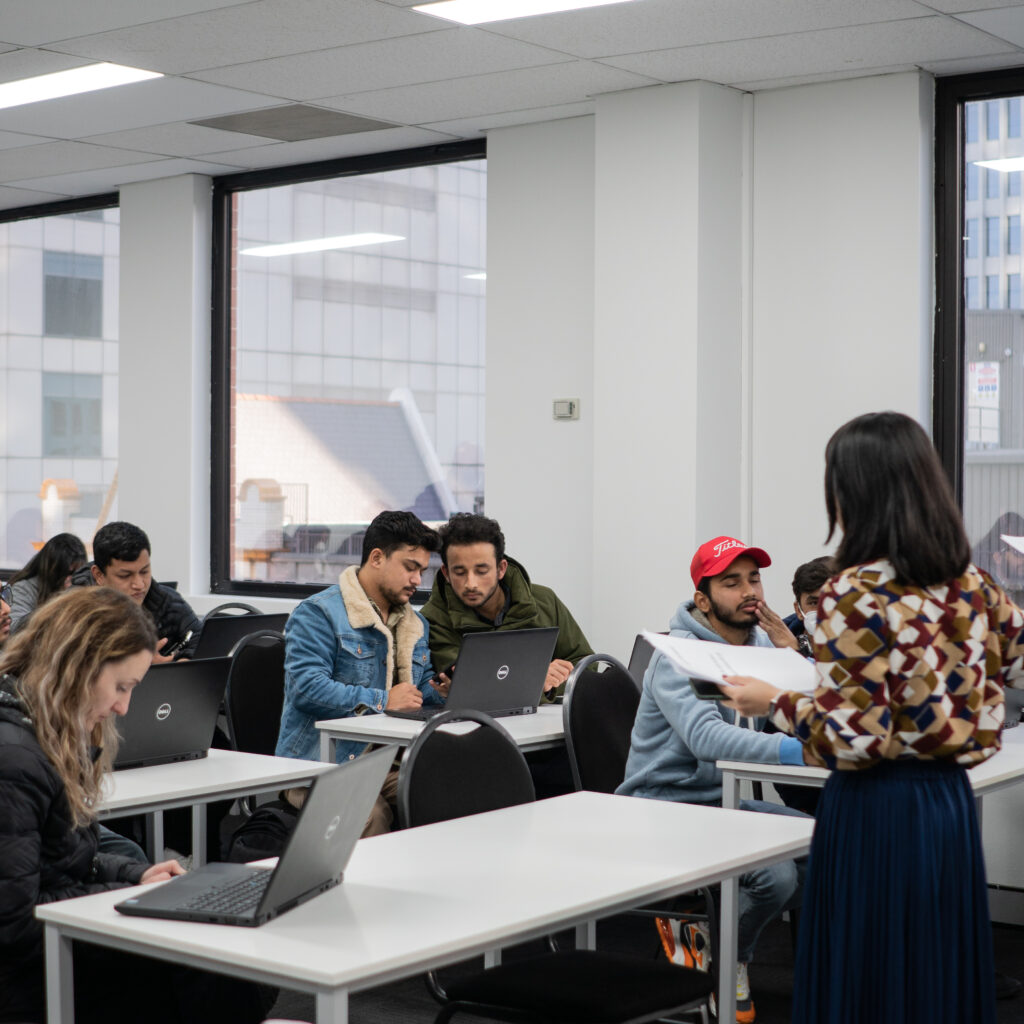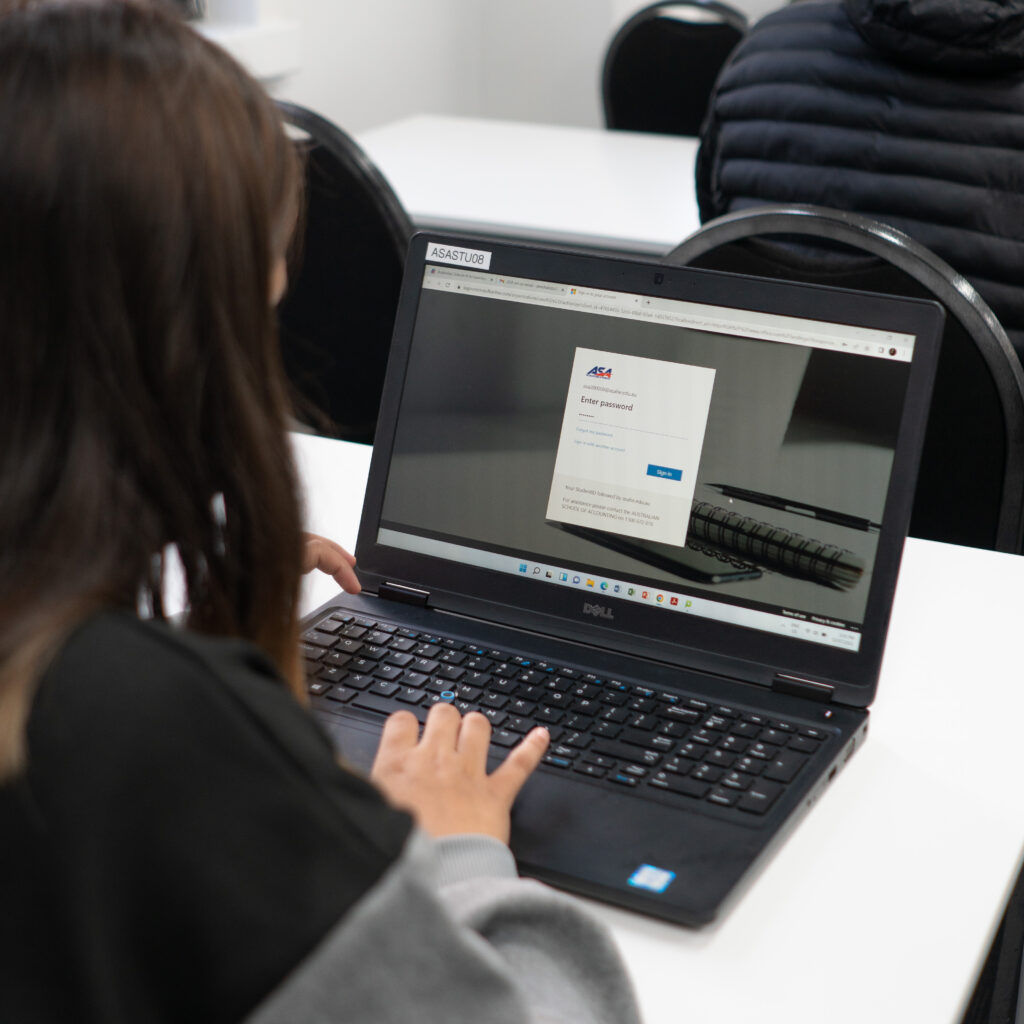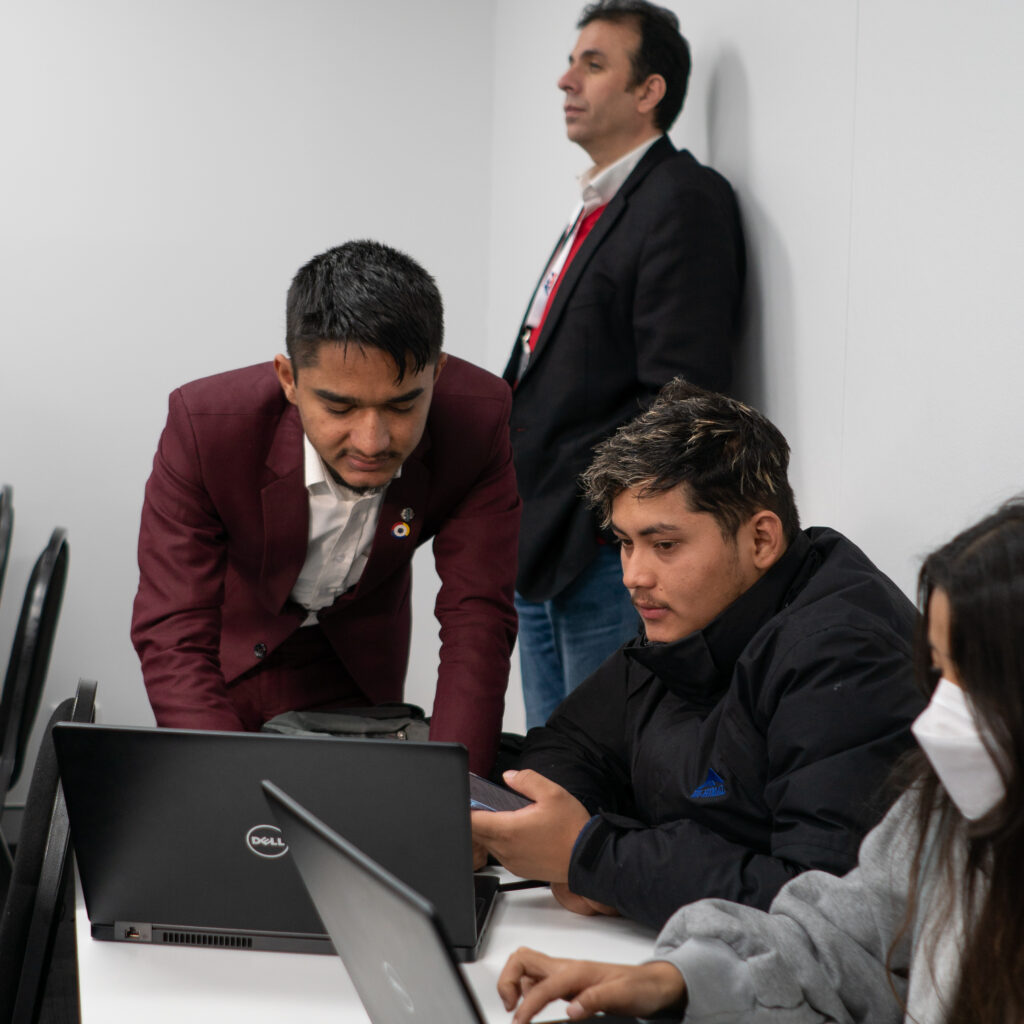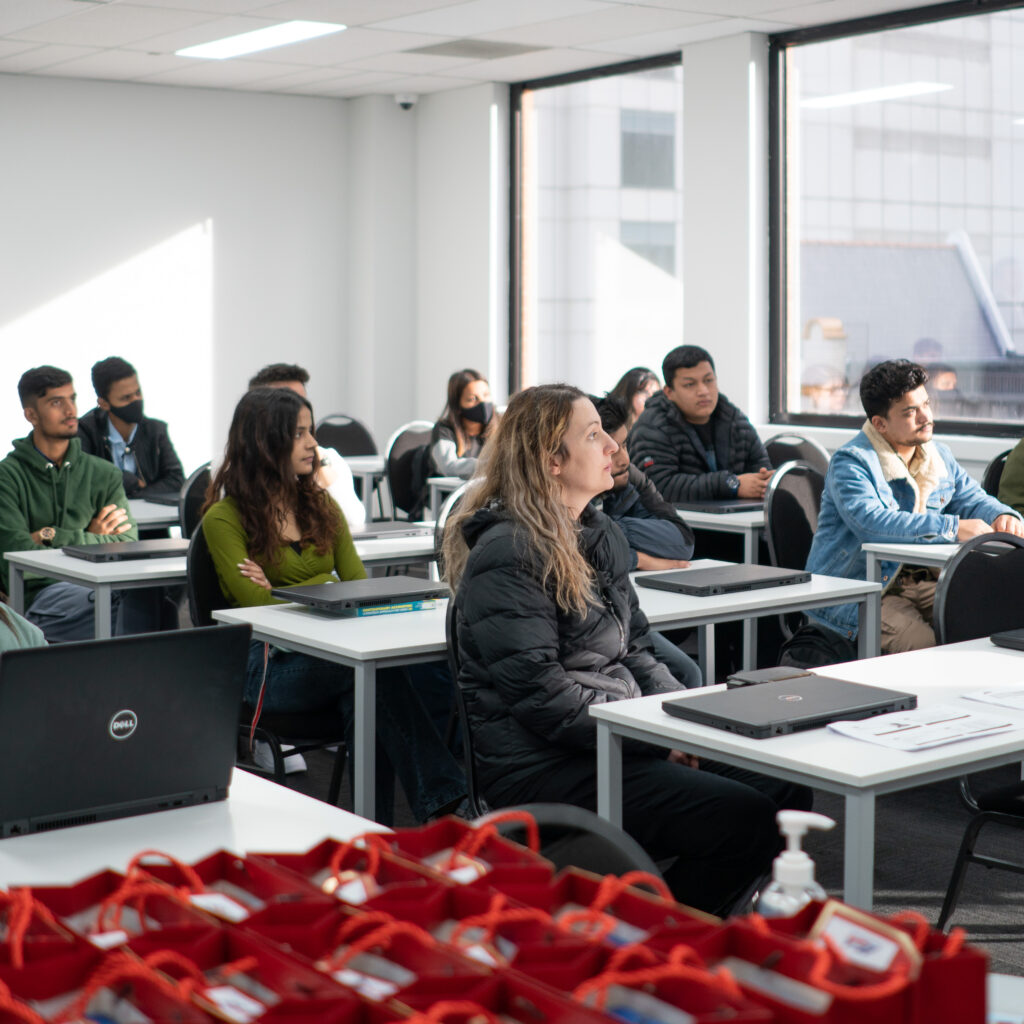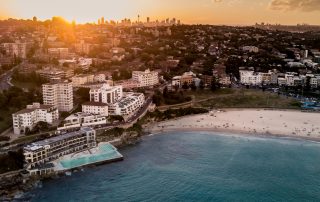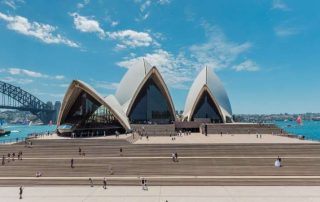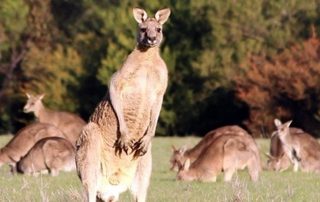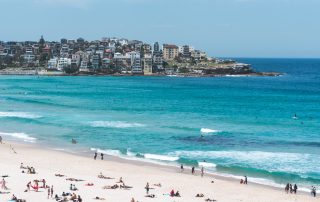Our Campus
ASA’s teaching and learning premises include classrooms, a library, space for students to interact and a kitchen for students and a range of furniture and technology to support student learning and interaction. ASA has a dedicated reception area for all visitors and students and a common area for students to work collegially. We currently have 100+ students on our campus every week.
Secure access to information and communication technology infrastructure includes student email, the learning management system and wireless access, in addition to support and training for students and staff. The physical environment including a library, kitchen and student work tables and seating in several break out spaces supports interaction between students outside of formal classes.
The Learning Management System actively supports and encourages interaction between students within cohorts and units of study plus student-only on-line space.
ASA is intent on providing an excellent physical and virtual learning environment. ASA is fully committed to adequately maintaining the facilities and learning resources whilst also ensuring those facilities and resources are safe, regularly reviewed and improved as required.
Library learning resources are central to the learning environment and increasing allocations for library and learning resources are an important component of our forward planning.
ASA has specific measures for admission and provision of support and services for Aboriginal and Torres Strait Islander peoples. There is English language support available to students of up to one hour per week and learning support assistance available for all students at 20 minutes per session. An initial needs analysis to be conducted at orientations will also inform ASA’s provision for equity and diversity.
The needs analysis and ongoing monitoring described above will support wellbeing and safety by ensuring the nature and extent of support services are informed by the identified needs of students. The Teaching and Learning Plan has a number of objectives and measured outcomes designed to ensure students’ needs are monitored and acted upon for the benefit of students.
The Student Support, Wellbeing, and Health Policy and Procedure supports the promotion and fostering of a safe environment at ASA. In conjunction with this policy, the Student Handbook, staffing profile and Orientation Program sessions are there to ensure students are aware of and receive, timely and accurate advice about access to personal and support services and the actions students may take if they feel the need for support.
We hope you find the campus and services provided work for you and assist you in your enjoyment and learning while studying with ASA.
The Australian School of Accounting offers the following support services to students:
- Orientation. When you arrive, we will give you a thorough orientation to help you understand the School and life in Australia.
- Academic support. We want our students to make the best progress they can. Academic staff will be available for student consultation each week during study periods. Consultation times will be introduced during orientation and displayed on student noticeboards. You may also be referred to an Academic Skills session if required by the Academic Dean. We will give you advice if you are finding your studies more difficult than you expected, or if you are not making the progress as quickly as you would like.
- English Language Support. The Australian School of Accounting has English language support available from a qualified English language teacher who has a Master of Arts in Teaching English to Speakers of other Languages (TESOL). If you are having English language difficulties, you may make an appointment for an English language support session
Our location in Sydney
The Australian School of Accounting is located in the centre of Sydney CBD, a 2 minute walk from Museum train station and a 10 minute walk from Town Hall train station.
This location has the enormous advantage of having very convenient and affordable accommodation. Our premises are only a few minutes’ walk away from Hyde Park and the city shopping precinct making life here very convenient. Our new campus has been expertly fit-out with the very latest in teaching rooms and facilities.
Living in Sydney
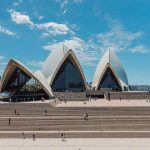 Sydney is a wonderful place. As the largest city in Australia, you will never be short of anything to see or do. Sydney Harbour provides a great environment for free-time activities. It is easy to find places where you feel you are in the countryside, not a big city.
Sydney is a wonderful place. As the largest city in Australia, you will never be short of anything to see or do. Sydney Harbour provides a great environment for free-time activities. It is easy to find places where you feel you are in the countryside, not a big city.
Sydney’s climate is as close to perfect as you’ll get! It can be quite hot in summer, but it’s less humid than places further north, so it’s more comfortable.
The Australian School of Accounting area has a wide variety of accommodation, to suit all tastes. From high-rise apartments to free-standing houses, you should be able to find somewhere comfortable to call home for your stay.
Sydney Life
Leaving home and living overseas independently is a big step. At ASA, we understand this can be daunting for both students and parents.
We will assist to prepare for your new and exciting life prior to arriving in Sydney, all new students will receive detailed information regarding our school, staff, to help you prepare.
Sydney is a multicultural and multiracial city, and with that comes a great variety of places to live. Depending on your lifestyle you can choose from over 600 suburbs in the Greater Sydney area. Choose according to budget, facilities, shops, and activities available in an area and, of course, distance from the ASA campus.
The city is among the top fifteen most-visited cities in the world, with millions of tourists coming each year to see the city’s landmarks. Boasting over 1,000,000 ha (2,500,000 acres) of nature reserves and parks, its notable natural features include Sydney Harbour, the Royal National Park, Royal Botanic Garden, and Hyde Park, the oldest parkland in the country.
Built attractions such as the Sydney Harbour Bridge and the World Heritage-listed Sydney Opera House are also well known to international visitors. The main passenger airport serving the metropolitan area is Kingsford-Smith Airport, one of the world’s oldest continually operating airports. Established in 1906, Central station, the largest and busiest railway station in the state is the main hub of the city’s rail network.
Sydney has an advanced market economy with strengths in finance, manufacturing and tourism and is the largest economy in Australia.. There is a significant concentration of foreign banks and multinational corporations in Sydney and the city is promoted as Australia’s financial capital and one of Asia Pacific’s leading financial hubs. Sydney is also home to the oldest library in Australia, State Library of New South Wales, opened in 1826.
There are lots of opportunities for work and and we are here to assist you to identify them. Our career advisors will be available to provide you with personal assistance and guidance to leverage opportunities along the way.
Living in Sydney can be great but you might need some help to find a great place to live. The Australian School of Accounting area has a wide variety of accommodation, to suit all tastes. From high-rise apartments to free-standing houses, you should be able to find somewhere comfortable to call home for your stay. Here are some links that might help to get you started and might help you to understand what you can expect.
Types of accommodation you might consider include:
Short-term accommodation
Hostels and discounted rates on hotels as well as a variety of options that may be available through websites such as Airbnb.
Rental
You can rent or ‘lease’ a property by yourself or with friends. This can be done through a real estate agent or privately. When renting a property, you will need to pay a security deposit or ‘bond’ (which is usually four weeks rent), as well as rent in advance (also usually four weeks). The bond is held to repair any damage that you, your housemates, or house guests cause to the property while renting. Some, or all, of this amount, may be refunded to you once your tenancy agreement has terminated.
Flatmates.com.au -is a site for those looking for shared homes or those looking for a flatmate
Austay – Share accommodation in Sydney
Tenancy Advice and Advocacy Services – provides free, independent information, advice, and advocacy to tenants in Sydney.
The international student guide to renting in Australia
Unilodge – student accommodation near educational institutions, including universities and colleges
Urbanest – provides purpose-built student accommodation
Homestay
With homestay, you will live with a family in their home. You will have all the comforts of an established home, often with meals and cleaning included. Families offering homestay accommodation to international students are thoroughly screened to ensure they can provide a suitable living environment for students. Services also include 24/7 professionally staffed emergency support, appropriate insurances, online payment services, online student and host orientation training, and professional airport reception services.
Find out more at Australian Homestay Network (AHN) that delivers global standards for homestay accommodation across Australia. AHN staff, its hosts, and affiliates are ambassadors of Australia, interacting with students and visitors from around the world.
The transport options available in NSW include buses, trains, and ferries. For public transport information see the Transport NSW website at https://transportnsw.info/ which provides a toolkit which includes:
Timetables and maps
Trip-planner – to plan your trip with real-time trip planning
Transport apps – where you can download apps for your mobile tablets or phone. This includes the Trip view app to locate timetables and monitor services in real-time
Transport news and updates
Regional travel – how to book travel online.
Opal travel card – how to obtain and top up See https://www.opal.com.au/ordercard/?execution=e1s1
As an international student you can only get a discount on public transport if you buy a quarterly or yearly MyMulti ticket 2 or 3. These tickets can be used on pre-pay buses and purchased at newsagents and train stations. Single bus tickets can be bought from the driver on limited services only.
Living costs in Sydney are similar to many other developed countries. Typical costs are:
Hostels and Guesthouses $90 to $150 per week
Shared Rental $95 to $215 per week
Homestay $235 to $325 per week
Rental $185 to $440 per week
Groceries and eating out $140 to $280 per week
Gas, electricity $10 to $20 per week
Phone and Internet $15 to $30 per week
Public transport $30 to $60 per week
Car (after purchase) $150 to $260 per week
Entertainment $80 to $150 per week
The above information clearly presents a broad price range. Current information more specific to Sydney is provided on the following website https://www.sydneymovingguide.com/the-cost-of-living-in-sydney/ which includes:
A breakdown of rental costs in Sydney by suburb
Utilities (electricity, phone, internet, etc)
Grocery shopping
Public transport costs
Eating out
Clothing
Sport and leisure
The minimum cost of living
The Department of Home Affairs has financial requirements you must meet in order to receive a student visa for Australia. From October 2019, the 12-month living cost is:
For students or guardian AUD$21,041
For partners coming with you AUD$7,362
For a child coming with you AUD$3,152
All costs are per year in Australian dollars. To convert to your own currency, visit http://www.xe.com/
Bringing your children
The Australian School of Accounting accepts students of any age above 18 years of age. Some
students may have their own children. If this applies to you and you are bringing them to Australia,
we have to inform you that they must study at an Australian school while they are here if they are of
school age. If this happens, you will have to pay school fees even at state schools.
If this applies to you, please contact us. We may be able to explain the requirements further and
help you.
Each classroom has a desktop computer networked for teachers, air-conditioning, and adequate lighting. Students will have access to 42 laptops as required. All classrooms and workstations are fitted out with the latest furniture. Students will have access to Wi-Fi functionality, photocopiers and laser printers.
Other facilities include a brand-new kitchen fully equipped with microwaves, hot and cold water, and tables and chairs.
The Australian School of Accounting courses are designed to be delivered face to face for students and delivered by expert teachers that hold all relevant industry qualifications and experience.
Campus life
Australian School of Accounting computer facilities include the latest technology and software, with sufficient terminals to cater to student needs. WiFi is provided throughout ASA so that students can access the internet from anywhere with their laptops and handheld devices. Every quadmester, each student is given unlimited free data allowance for internet usage.
The Australian School of Accounting is committed to delivering high-quality services that support students throughout their training and assessment. This commitment is based on a student-focused operation where The Australian School of Accounting prioritises the support and welfare of students from both an academic and non-academic perspective. Student support services will help students who need assistance with:
College Community Events Academic Progress issues
Emergency and Health Services College Campus issues
Complaints and Appeals Employment issues
Legal Services Health and Welfare
The Australian School of Accounting believes a successful student needs to have a healthy life outside of school in order to succeed while you are in school. If you have any issues feel free to talk with student services so we can refer you to the people for help.
There are lots of opportunities for work and and we are here to assist you to identify them. Our career advisors will be available to provide you with personal assistance and guidance to leverage opportunities along the way.
Australia is generally a very safe and welcoming place to live and study, consistently ranking among the safest countries in the world.
But it is still important to look after yourself and be aware of the risks that exist – and ways to minimise them. This is particularly important when you first arrive and are adjusting to your new way of life.
Following your common sense and best practices will ensure you remain safe and healthy, whether you are handling emergencies, personal and home safety, or natural elements such as sun, water, and fire.
The Australian School of Accounting is not able to provide any legal advice to students, but we can refer you to a place that can help.
The Redfern Legal Centre contains the International Student Legal Service NSW which provides free, confidential legal advice to international students living in NSW. Visit https://rlc.org.au/our-services/international-students for more information or call 02 9698 7277.
Australian School of Accounting recognises that opportunities for improvement arise in every aspect of the business and has developed an organisational culture within ASA capitalise on these opportunities for improved practice.
Student feedback is critical to our continuous improvement policy. ASA supplies feedback forms to all students at several points during each program, as participant feedback has been identified as an important and valuable factor in monitoring and developing business practices and quality training, ensuring the ever-changing needs and expectations of clients are being met.
The Principal also welcomes feedback from other improvement opportunities such as risk assessment, student suggestions, complaints and appeals, validation sessions and audit reports. Along with these formal feedback methods, students are encouraged to give feedback throughout their enrolment. Feedback from overseas students on their satisfaction with services is highly valued as ASA strives to successfully meet your unique needs and aspirations.
As an International Student, it is a condition of your student visa that you have Overseas Student Health Cover (OSHC) for the entire duration of your stay in Australia. OSHC gives you access to out of hospital and in-hospital medical services to help you maintain your health. OSHC will also pay limited benefits for pharmaceuticals and ambulance services.
Currently, five Australian health funds provide OSHC policies for overseas students:
Australian Health Management
People care Health Limited
BUPA Australia
Medibank Private
nib Health Funds Limited
Details and costs of policies, including what an OSHC policy will and won’t cover, and any waiting periods that may apply to certain treatment types, can be obtained by contacting each insurer directly.
Seeing a doctor
Depending on where you live there are most likely medical practices that are close by and you should be able to locate and often make appointments online. The Australian School of Accounting can recommend the closest and reliable doctor if you are not sure.

